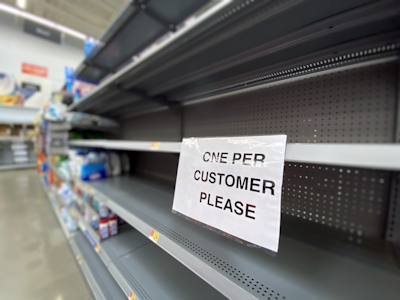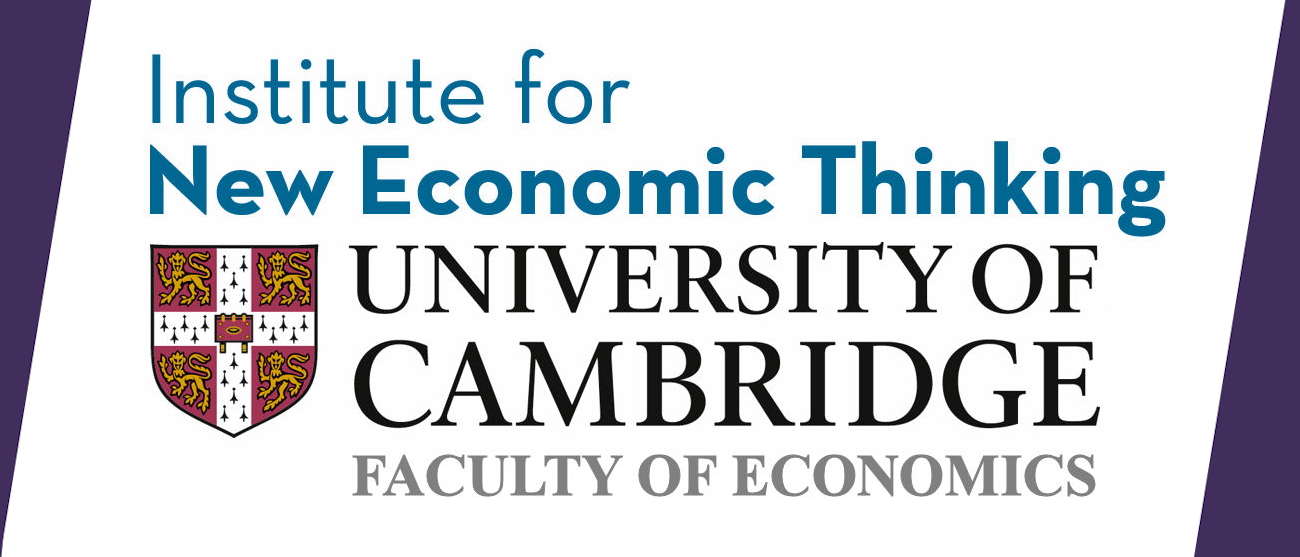As governments introduce strict measures to slow the spread of Covid-19, shoppers rushed to stockpile ahead of a complete lockdown. Although people are allowed to leave their homes to buy essentials, empty shelves are now a common sight in supermarkets and stores as a result of this stockpiling. Here, we discuss how panic buying can be viewed as rational behaviour in response to lockdown measures.
When facing the decision about how much to buy for the foreseeable future, individuals may want to reduce their exposure to environments that facilitate the spread of the virus, such as supermarkets. In light of this goal, an individual’s best choice is to stockpile as much as is necessary for a several week lockdown. How many goods one considers necessary is problematic when one must plan for many contingencies. At the same time, vulnerable groups, who often rely on voluntaries for good provision, may end up with no units of specific products at all. For vulnerable people, shielding can last about twelve weeks. There is a clear tension between what is optimal for each individual, and what is best from the point of view of the society as a whole.
A first step would be to limit the number of items that people can buy for popular goods, as soon as warehouses show signs of shortages. Of course, certain people will visit multiple shops in search of their desired goods but this clearly goes against the goal of reducing exposure to crowed stores. One should also allow vulnerable individuals to buy more items of such goods so that they can avoid coming into the stores often.
Once lockdown measures have been implemented, the layout of traditional supermarkets makes it difficult to comply with social distancing rules. Social distancing lines taped across the floor of supermarkets are not quite effective if buyers are encountering others coming in opposite direction within a narrow aisle. It is imperative to implement a new shelf layout. One simple adjustment would be to keep at least 4m between shelves that display popular products. Another change would be to implement a one-way system in all or certain aisles with popular goods.
Some sort of lockdown measures will likely be kept in place for the next few months, so neighbours may see each other at the local store every other couples of weeks. This allows social norms to punish socially irresponsible behaviour. However, old-fashioned social sanctions, such as ostracism, would be unlikely to be effective when everyone is isolated in their homes. When social gatherings of more than two people are banned, for example, excluding the greedy neighbours from joining a barbecue is not possible. However, it would be relatively straightforward to post a picture of the same greedy neighbours piling packets on their trolleys.
Typically, shoppers make decisions on how much to buy sequentially. There are the first people who decide to panic buy or not. Then others make their own decision based on their own information and may infer some information from the people who came before them. Even those who are confident that supply chains would cope with the ramp-up in the demand for certain products, as they see that people keep buying large quantities and stocks start to deplete, they may worry that others have more information than they have, disregarding their own information and therefore starting to stockpile. Without leaving their homes, people are now able to observe what others are buying from pictures posted on social media and from figures reported by news outlets. This may exacerbate herding behaviour as buyers have more information about what others have already bought. Instead, individuals may be discouraged from visiting stores with shortages by emphasising that empty shelves represent a huge turnout of shoppers and that the chance of virus transfer at these locations is therefore higher.
Dr. Block was interviewed by Lizzy Burden of The Telegraph, for the article "Is Panic Buying Irrational? Here's Why It Can Seem To Make Economic Sense".

About the author
Juan Block is a Janeway Fellow in Economics at the Faculty of Economics, and Greta Burkill Fellow and College Lecturer in Economics at Murray Edwards College, University of Cambridge. He specialises in microeconomic theory, with a particular interest in game theory.








